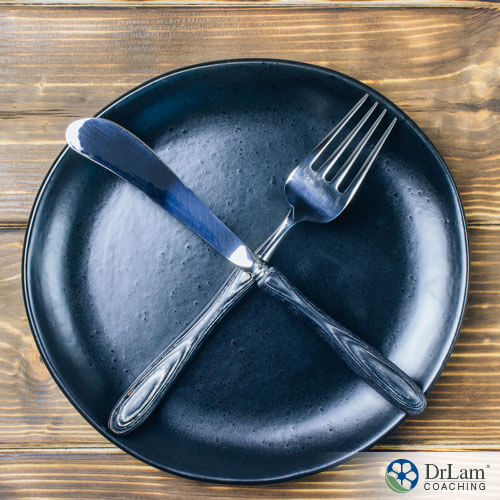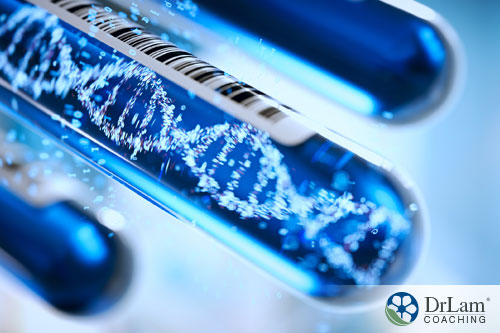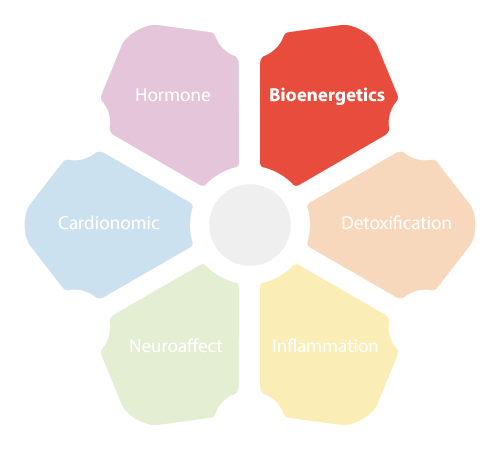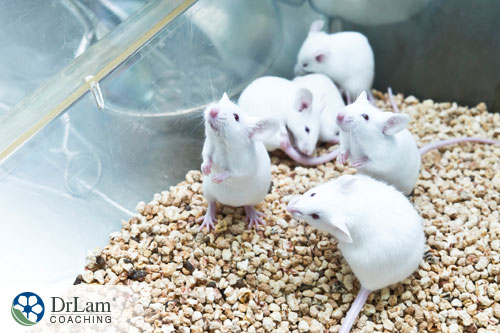 Fasting is not just a new trend aimed at weight loss, although it has become one of the most popular ones used by people that are on all types of diets – whether ketogenic, paleo, plant-based, or even the Standard American Diet. It goes way back and spans many different cultures and traditions, such as those found in Christianity, Judaism, Islam, Buddhism, Taoism, and others. And with many recent studies coming out on fasting and cancer, fasting merits further investigation.
Fasting is not just a new trend aimed at weight loss, although it has become one of the most popular ones used by people that are on all types of diets – whether ketogenic, paleo, plant-based, or even the Standard American Diet. It goes way back and spans many different cultures and traditions, such as those found in Christianity, Judaism, Islam, Buddhism, Taoism, and others. And with many recent studies coming out on fasting and cancer, fasting merits further investigation.
Hippocrates, the father of modern medicine, said, “Instead of using medicine, rather, fast a day,” and Plato stated that he fasted for greater physical and mental efficiency.
So, what is fasting exactly? Fasting is some form of abstinence from food or drink or both for a period of time. There are many different methods of fasting, and they can differ in motivation, content, or timelines. For example, there is the fasting that some people partake in for Lent, whose motivation is a religious one, and where you give up eating certain types of food like meat or dairy, and the timeline is around 40 days.
One of the most popular types of fasting at the moment is intermittent fasting. Most people do intermittent fasting for health and weight-loss purposes, and it’s usually an abstinence from eating, while drinking water is okay. Intermittent fasting can take on many forms, including:
As you can see, there are many different ways you can intermittently fast. Generally, what characterizes intermittent fasting is that it is considered a short-term fast that is done periodically and consistently. Prolonged fasting, on the other hand, is usually done for one or several days, and is not usually done on a consistent basis.
Some types of intermittent and prolonged fasting are dry, where you abstain from food and drink. Water-fasting is where you abstain from food but are encouraged to drink water, and are permitted to drink tea or coffee as long as they do not contain any ingredients with calories. You may have come across water-fasting retreats, some as long as 30 days.
There are hundreds of these different configurations, all with different effects and motivations. And there is now good evidence of the efficacy of fasting for health, both physical and mental, to back up the claims from ancient traditions.
In this article, we are going to dive into the science behind fasting, and we’ll be focusing on fasting and cancer, while also covering some precautions if you have certain conditions.
 Understanding cancer is important, since it is one of the most widespread diseases in the entire world, and it is the second leading cause of death in the US after heart disease. Plus, the research on the link between fasting and cancer treatment is one of the most exciting.
Understanding cancer is important, since it is one of the most widespread diseases in the entire world, and it is the second leading cause of death in the US after heart disease. Plus, the research on the link between fasting and cancer treatment is one of the most exciting.
Cancer is actually a collection of related diseases, and it can affect many different organs and systems in the body. It is characterized by the uncontrolled growth of abnormal cells.
Your body is made up of trillions of cells, and they all have an innate program that tells them when to grow, divide, and then die so that new cells take their place and repeat the cycle over and over again. This process of renewal is essential for maintaining health, and it is the foundation of how healing occurs. Dead and damaged cells get cleared out from the body to make space for new, healthy cells.
With cancer cells, this program is defective. These abnormal cells grow old and are damaged, yet they do not die. New cells also start to form, even though they don’t have a place and the body doesn’t actually need them. As these cells keep dividing and multiplying, they form tumors. Some cancers form solid tumors, like those found in the breast or liver, while some cancers affect the blood.
Malignant tumors can grow and spread to the surrounding areas, and cancerous cells can travel throughout the body via the blood and lymph, creating new tumors where they land which become metastatic. Depending on which organ or system is affected, the rate of survival changes, as does the treatment approach. Also, each type of cancer has its own set of risk factors.
For example, smoking contributes to lung cancer, and lung cancer causes more deaths than any other type of cancer for both men and women. In 2016, it accounted for almost 86,000 deaths in men and over 72,000 deaths in women.
For men, prostate cancer and colon cancer come next, with over 26,000 deaths each, also in 2016. For women, breast cancer and colon cancer come after lung cancer, with over 40,000 and 23,000 deaths respectively in 2016.
Although cancer is the second biggest killer in the US, the good news is that a large number of cancers are preventable, and many are reversible with the right combination of treatments and lifestyle changes. For example, all smoking-related cancers can be prevented if you don’t smoke and are careful to avoid secondhand smoke.
We’ll get into prevention and recovery throughout this article, with a focus on the emerging research on fasting and cancer. But in order to understand prevention and recovery strategies, you need to first have a solid understanding of the major cancer risk factors.
 Genes are both a risk factor for and a driver of cancer growth. This means that some genes predispose us to developing cancer (but don’t panic as there is a very important epigenetic caveat). Cancer, in this case, is caused by changes to the genes that control the programs that dictate cell growth, division, and death.
Genes are both a risk factor for and a driver of cancer growth. This means that some genes predispose us to developing cancer (but don’t panic as there is a very important epigenetic caveat). Cancer, in this case, is caused by changes to the genes that control the programs that dictate cell growth, division, and death.
These changes in gene expression can be caused by genetic factors, as part of the genetic predisposition, but they can also be a result of DNA damage. And sometimes, these genetic changes and DNA damage can actually be caused by cancer, rather than be the cause of cancer.
Generally speaking, there are three types of genes that are the most affected by the genetic changes that cause cancer: proto-oncogenes, DNA repair genes, and tumor suppressor genes. The proto-oncogenes are the genes that support healthy cell growth and division. When they are normal, your cells grow and divide at a regular rate. If they become more active than usual, they can overstimulate the growth and division of cells and let cells live longer than they should.
Genes involved in DNA repair do exactly what their name implies, but when they mutate in a specific way, they can lead to cancer by not repairing the necessary DNA needed to stop cancer cells.
And when tumor suppressor genes, which by definition help suppress cell growth and division, mutate, they may allow the cells with these mutations to grow and divide unchecked.
There’s nothing you can do about your genetic predisposition to such mutations. You inherit genetic predispositions from your parents. You also can’t directly control the intricate and complicated process by which gene mutations occur.
However, what you can do is rely on the principle of epigenetics that states, in the simplest of words, that biological mechanisms can switch genes on and off. And, thankfully, with disease genes, there’s a lot you can do to manipulate the biological mechanisms in order to keep them “switched off.”
Based on this principle, you can look at the different dietary, lifestyle, and environmental factors that can increase or decrease your risk of cancer, and then change the ones that you can. And although some may seem quite impossible to change, such as chronological age, there are ways you can manipulate your biological age.
Understanding the link between fasting and cancer can help you use fasting as one method to try and control the switching on and off of such genes. But again, with something as serious as fasting and cancer, this is not to be taken lightly. This is especially so if you have other chronic conditions or a weakened constitution. You should only do so under the supervision of an experienced professional.
Still, as you read about all the different studies on fasting and cancer, as well as the general health benefits of fasting, you may consider talking to your doctor to see if it is right for you.
The major risk factors for cancer are:

According to the World Cancer Research Fund, up to one-third of cancer cases in the US and other developed countries are associated with just three of the above risk factors, and all three of which are easily remedied. Can you guess which ones?
They are being overweight/obese, being sedentary, and eating an unhealthy diet. And if you think about it, the first one is related to the other two. As for cancers that are caused by exposure to viruses such as HPV, HBV, HCV and HIV, and bacteria such as H. pylori, these can either be vaccinated against or treated with antibiotics and certain natural remedy protocols. With skin cancers, many can be prevented by avoiding tanning in tanning salons and protecting your skin from too much sun exposure.
Aging is generally the biggest risk factor for developing cancer and has to do with the fact that over a longer span of life, you have more exposure to the other risk factors. As you get older, you may experience a decline in your level of activity, your body has accumulated the negative effects of unhealthy dietary and lifestyle choices over a long period of time, and you may have developed inflammation and chronic diseases that have weakened your system.
But, there are also several important developments that occur as you age that increase the risk of cancer; these include:
Although these issues tend to develop or intensify with age, younger people can also experience a decline in immunity, a build-up of oxidative stress, and the shortening of their telomeres, again due to unhealthy dietary and lifestyle habits.
But the good news is there’s actually a lot you can do to improve all of these issues, and this can be done through something as simple as making changes to your diet. When thinking about fasting and cancer, it is not meant as a replacement to a healthy diet that helps reverse some of these risk factors, but as an addition to an already cleaned-up nutrition plan, and only in a combination of fasting and cancer treatment.
One increasingly common condition that is often associated with imbalances in the body and can lead to cancer is adrenal fatigue, a condition caused by stress. This condition is related to many of the cancer risk factors mentioned above.
 If you are one of our regular readers, you know that we emphasize the importance of whole-person care, and that we specialize in helping those with stress-induced conditions, particularly Adrenal Fatigue Syndrome (AFS) and the dysregulation of the NeuroEndoMetabolic (NEM) Stress Response. And that’s for good reason – these imbalances are very common these days due to the stresses and pressures of modern life.
If you are one of our regular readers, you know that we emphasize the importance of whole-person care, and that we specialize in helping those with stress-induced conditions, particularly Adrenal Fatigue Syndrome (AFS) and the dysregulation of the NeuroEndoMetabolic (NEM) Stress Response. And that’s for good reason – these imbalances are very common these days due to the stresses and pressures of modern life.
Your adrenal glands, along with the thyroid and female ovaries/male testes, are part of the Hormone circuit of the NEM. This is important to note because some cancers are caused by hormonal imbalances, and hormonal imbalances characterize adrenal fatigue. The other five circuits are the Bioenergetics, the Neuroaffect, the Cardionomic, the Inflammation, and the Detoxification circuit.
As soon as the Hormone circuit is engaged, the Bioenergetics circuit follows suit. The Bioenergetics circuit is composed of the liver, pancreas, and thyroid, and its main role is to ensure your body gets the right amount of energy it needs when it needs it. When you are faced with stress, your Bioenergetics circuit raises your basal metabolic rate, increasing glucose delivery to the brain so that you can handle the stressor in front of you.
But when the stress is chronic, your adrenal glands begin to overwork in order to continue producing cortisol, which is your body’s main anti-stress hormone, and they eventually end up exhausted. Your Bioenergetics circuit tries hard to compensate, but without support or relief, it dysregulates, causing issues to arise with your metabolism.
Symptoms of AFS and a dysregulated Bioenergetics circuit can include fatigue, easily gaining weight and difficulty losing it, insomnia, heart palpitations, hair loss, brain fog, food and drug sensitivities, hypoglycemia, anxiety, mild depression, lowered immunity, low libido, infertility, salt and sugar cravings, and digestive issues.
With advanced stages of cancer, you start to see catabolic states, where the body is wasting away due to a continuous insufficiency in nutrition. Cancer cells multiply in number and waste nutrients that would otherwise be used by the body. It’s not that there’s not enough food, it’s that your body has a much harder time absorbing the nutrients. This comes about when cancer cells take over the metabolic activities of normal cells, draining the body’s nutritional and energy reserves.
So where does that leave the question of fasting and cancer treatment if you also suffer from NEM dysregulations?
Fasting when your body is under cancer stress and dealing with metabolic issues may end up aggravating said issues. The cells are already so depleted of nutrients and energy, hence the fatigue, that any more depletion can require the body to break down muscle tissue in order to get energy.
People with AFS don’t have to rule out fasting altogether. It can be a wonderful healing tool when done in the right way under the right conditions. Once you are well into AFS recovery, and your Bioenergetics circuit is functioning properly, it could be something to try with the help of an experienced professional, especially if you suffer from food sensitivities or digestive problems.
The thing to remember, however, is that the cornerstone of adrenal fatigue recovery is eating the nutrient-dense, easy-to-digest, and most importantly, anti-inflammatory adrenal fatigue diet. Plus, you should be eating every three to four hours in order to replenish the nutrients and energy in your body. That’s why fasting is not something that is typically a good idea when you have AFS.
Many of the cancer risk factors listed above are also adrenal fatigue risk factors, and they can also be caused or worsened by adrenal fatigue. This is why it’s important to improve the health of your adrenal glands when thinking about cancer prevention and recovery, and why when considering fasting and cancer care, we recommend you check if you have AFS first in order to avoid weakening your adrenals further.
 Immunodeficiency, or lowered immunity, is one of the most pertinent subjects to the topic of fasting. Immunodeficiency can be the result of many things, including aging, adrenal fatigue, NEM dysregulation, inadequate nutrition, and using immunosuppressants. Your immune system is your body’s defense against not just pathogens and invasions coming in from outside, including the viruses and bacteria that can trigger cancer development, but also against abnormal and damaged cells within the body.
Immunodeficiency, or lowered immunity, is one of the most pertinent subjects to the topic of fasting. Immunodeficiency can be the result of many things, including aging, adrenal fatigue, NEM dysregulation, inadequate nutrition, and using immunosuppressants. Your immune system is your body’s defense against not just pathogens and invasions coming in from outside, including the viruses and bacteria that can trigger cancer development, but also against abnormal and damaged cells within the body.
Although at this time there is still some debate in the scientific community about whether or not the prevention of cancer is one of the primary functions of the immune system, there is enough evidence linking lowered immunity with heightened cancer risk. This has been shown in both mice and humans with primary immunodeficiency; it has also been shown in people who are treated with immunosuppressive drugs, such as recipients of organ transplants; and it has been shown in patients with acquired immunodeficiency, such as those with HIV-1.
Also, the quality and quantity of tumor-infiltrating immune cells has been used as a prognostic factor when evaluating cancer patient survival. That means that if you find many strong immune cells infiltrating tumors, it’s a more positive prognosis, whereas when they are weak and few in number, it’s not a good sign. There are also specific lymphocytes, lymphatic immune cells that carry NKG2D receptors, that have the ability to seek out and destroy premalignant cells.
There are other factors that medical scientists have been studying that seem to corroborate this theory. The result has been some developments in using cancer protocols that center on increasing the power of the natural immune response of the patient to fight cancer.
One such protocol is the use of fasting in conjunction with other cancer treatments, such as chemotherapy. Dr. Valter Longo, one of the pioneering researchers on longevity-nutrition, fasting and cancer, developed a diet that mimics fasting, called the Fasting Mimicking Diet (FMD), which he used in different mouse and clinical trials, and the results are quite eye-opening.
Dr. Longo’s FMD is a low calorie, low sugar, low protein, high in unsaturated fats diet that has the same effect as water-only fasting. In one of the mouse trials, he put middle-aged mice on FMD twice a month for four days each time. The control group was young mice and older mice not on the FMD.
They checked the white blood cell count in both groups. The mice on FMD had the same white blood cell count as the young mice, and some even had more than the young mice. On top of that, their tumors saw a 45% reduction, the development of tumors was delayed, and there were more benign tumors than malignant tumors. The researchers also found that the FMD had effects on inflammation, the nervous system, and other factors.
 The most likely conclusion, according to Dr. Longo, is that FMD had a rejuvenating effect on the immune system of the middle-aged mice. And the question then became whether fasting can also help with already-developed cancers. So his team looked at the differences in outcomes when using fasting vs. cancer treatment vs. fasting and cancer treatment combined in mice with already-developed cancers.
The most likely conclusion, according to Dr. Longo, is that FMD had a rejuvenating effect on the immune system of the middle-aged mice. And the question then became whether fasting can also help with already-developed cancers. So his team looked at the differences in outcomes when using fasting vs. cancer treatment vs. fasting and cancer treatment combined in mice with already-developed cancers.
In mice with lung cancer, if no treatment at all was administered, all the mice died. If the mice were made to fast but were not given chemotherapy, they also all died. Same goes with mice that were given chemotherapy but were not made to fast. In mice with breast cancer, those given only chemotherapy or only made to fast, only 20% of them survived. But with both types of cancer, the mice that were treated with a combination of fasting and cancer treatment, like chemotherapy, the survival rate was 60%.
Human clinical trials are also available, though they are not as numerous. In one 18-patient clinical trial by the USC Norris Cancer Center, they found that patients who fasted for 72 hours had fewer adverse effects when receiving chemotherapy than patients that fasted only 24 hours. They had less nausea, vomiting, thrombocytopenia, neurological effects, and neutropenia. Other research has also found promising results.
Why are fasting and cancer treatments more effective together?
Since cancer cells don’t usually respond to anti-growth signals, like those given by starvation, there must be other possible explanations on how fasting and cancer treatments work together. Although the data is still being collected, there are a few theories.
First of all, sugars and proteins activate certain proto-oncogene pathways that can increase the risk of cancer development, given that other risk factors are also present. Sugar activates the Ras-PKA pathway while protein actives the GH, IGF1, S6K, and Tor pathways. In the section on genes and cancer risk above, we talked about three types of genes that are most affected by the genetic changes that cause cancer, and one of them was the proto-oncogene type.
So, if while you undergo cancer treatment you periodically fast, you essentially starve and deactivate such a pathway. Also, because fasting has a very wide range of activity on so many different pathways and markers, it widens the scope of action of cancer treatment.
But there’s also another angle of interest - that of fasting and cancer prevention. Fasting, when done correctly and periodically, can have far-reaching effects on not just the immune system, but also on other cancer risk factors, such as inflammation.
Inflammation almost always begins in the gut, and then it can spread to other areas of the body. There are several reasons why inflammation begins in the gut, but usually, it is due to dysbiosis (imbalance of the gut’s microbiome) and leaky gut (where the tight junctions in the lining of the gut’s wall begin to loosen). Dysbiosis is a cause of leaky gut.
What happens when there are leaks in the gut is that particles pass through to the bloodstream that shouldn’t be there, and they then trigger an immediate immune response. That creates inflammation in the area, which is a natural and healthy defense mechanism. Inflammation helps fight and get rid of invaders and damaged cells. But because there are leaks, which remain until they are properly addressed, this cycle keeps getting triggered and you get chronic inflammation.
Fasting may be a way to help your gut’s microbiome regain balance and give your gut the break it needs to seal up those leaks. Mainly, it stops you from eating inflammatory foods that trigger dysbiosis and leaky gut, such as sugar, alcohol, gluten, and dairy. But, unless you follow up with positive long-term dietary changes, fasting is only a temporary solution.
 When talking about fasting and cancer, there are so many different factors involved in how it will affect you that it is not something that works in all situations. As we’ve seen, considerations such as AFS must also be taken into account when thinking about fasting. It is very important that if you are suffering from AFS, you seek out an AFS specialist before embarking on fasting. Your body might not be able to handle fasting depending where you are on your adrenal fatigue recovery, and it might actually push you further into adrenal exhaustion. So in the end, the most important takeaway is to make sure you get the advice of your specialist, and only fast under supervision.
When talking about fasting and cancer, there are so many different factors involved in how it will affect you that it is not something that works in all situations. As we’ve seen, considerations such as AFS must also be taken into account when thinking about fasting. It is very important that if you are suffering from AFS, you seek out an AFS specialist before embarking on fasting. Your body might not be able to handle fasting depending where you are on your adrenal fatigue recovery, and it might actually push you further into adrenal exhaustion. So in the end, the most important takeaway is to make sure you get the advice of your specialist, and only fast under supervision.
© Copyright 2020 Michael Lam, M.D. All Rights Reserved.
Cancer prevention is on many people’s minds as cancer remains one of the biggest killers in the developed world, even after many technological advances. But the exciting new research on combining fasting and cancer treatment should give you much more hope.
